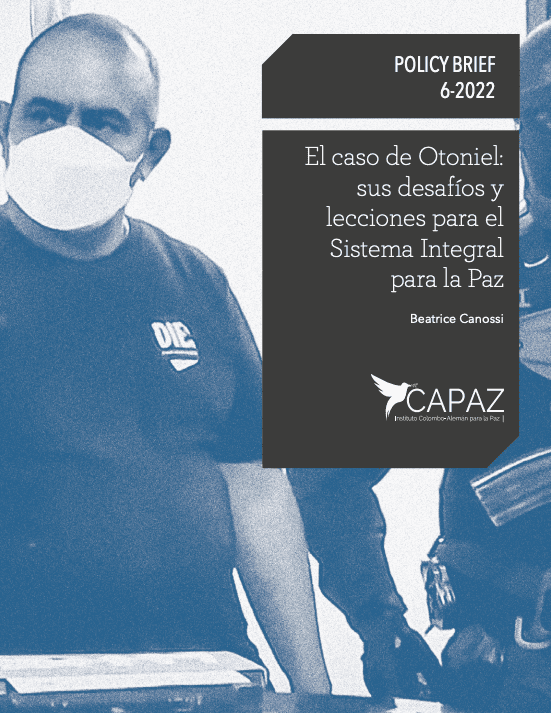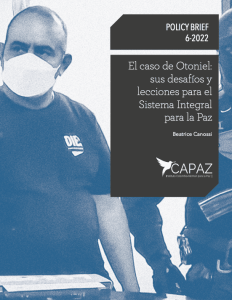
Analysing the Otoniel case in the latest CAPAZ Policy Brief
 The CAPAZ editorial project continues to bring together authors who contribute to current issues based on careful research.
The CAPAZ editorial project continues to bring together authors who contribute to current issues based on careful research.
In this publication, Professor Beatrice Canossi (researcher at Universidad del Rosario) recounts the case of Dairo Úsuga alias Otoniel to highlight some of the challenges and limitations currently faced by the Comprehensive System for Peace when intervening in the stages of his case. The publication is titled, The case of Otoniel: its challenges and lessons for the Comprehensive System for Peace.
Download Policy Brief 6-2022 (.pdf) in Spanish.
The author
Beatrice Canossi is a law graduate with a Master’s degree in International Criminal Law from the University of Galway, Ireland. She is a doctoral candidate at the Irish Centre for Human Rights at the same university, on a grant from the Irish Research Council. She was a visiting researcher at Universidad del Rosario (Bogotá) from August 2021 to July 2022. She is researching the relationship between judicial and extrajudicial mechanisms in transitional justice, with a focus on Colombia’s Comprehensive System for Peace.
https://orcid.org/0000-0002-8511-8782
b.canossi1@nuigalway.ie
Abstract
The recent case of Dairo Úsuga alias “Otoniel” has been the subject of intense debate in Colombia following his capture, his contributions to the Comprehensive System for Peace, the obstacles encountered, and his rapid extradition. This policy brief reviews and analyses the complex development of this case in order to highlight some of the challenges and limitations that the system currently faces. It focuses particularly on the relationship between the judicial and extrajudicial mechanisms of the Comprehensive System for Peace; the access to, collection, and protection of information gathered; the security of officials and participants in this system; and the need for greater cooperation and coordination of other state institutions with the system’s mechanisms. The recommendations and final reflections are intended to draw lessons from this case in order to strengthen the delicate work of these mechanisms.
This Policy Brief is part of the CAPAZ Línea Azul publications, which comprises academic works related to the Comprehensive System of Truth, Justice, Reparation and Non-Repetition (SIVJRNR).



